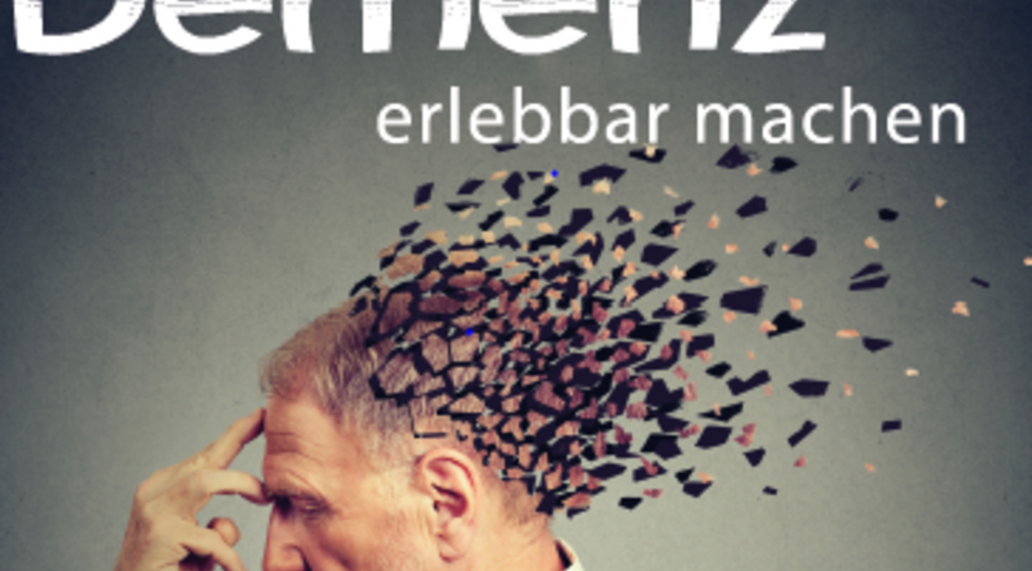
Dementia is one of the most common diseases, mostly affecting older people. In Germany alone, 1.6 million people are affected by it. However, not all causes of dementia have been fully researched yet. At the same time, caring for those with dementia or dementia syndromes is extremely challenging.
Affected individuals suffer from impairments in memory, thinking, orientation, comprehension, calculation, learning ability, language, speech, and judgment. In addition, there are often changes in emotional control, social behavior, or motivation.
To convey to caregiving relatives, as well as nursing staff, what impact dementia has on the daily lives of patients, Leon Maluck, a psychology student at the Medical School Berlin, developed the course "Hands on Dementia." It guides participants through a typical day.
In a total of 13 everyday situations, it simulates the typical symptoms of dementia. Starting from getting dressed to having dinner, the participants experience how these symptoms feel and what discomfort those affected endure.
We spoke with Ms. Wilhelmi, a psychologist, idea generator, and the mother of the inventor, and gained interesting insights into the course and what it does with the participants.
Ms. Wilhelmi, how did the dementia course come about?
Many years ago, my then-boss asked me to provide information about dementia in a shopping center. I quickly realized that I could only pique the curiosity of passersby if I offered them something. So, I developed exercises, and interested individuals could perform these on-site. Those were the beginnings of the dementia course.
My son further developed the dementia course primarily for school classes. Today, with "Hands on Dementia," anyone can experience what it means for those affected by dementia to navigate daily life. From caregiving relatives, to doctors, nursing staff, and even children in daycare.
Why is it so difficult to feel like someone with dementia?
An example: When I explain to you that people with dementia syndrome suffer from apraxia, which is a disorder of the ability to act, understanding is one thing. The other is experiencing it yourself - empathizing with how the patients feel. This is also one reason why the dementia simulator is oriented towards a completely normal daily routine. Starting with getting dressed in the morning, through lunch, to going to bed.
How can one envision the process? Could you illustrate this with an example?
The most striking example is the lunch. Here, participants have to try to distribute paper balls on the plate with a knife and fork. That sounds simple at first. However, everything is housed in a box, and the participants see their actions in a mirror.
With the mirror, the brain is tricked. The result is that the participants can no longer coordinate their actions. Similarly, it happens to those suffering from dementia. In patients with dementia, certain connections in the brain are no longer present, which leads to the inability to coordinate certain processes.
They say that the participants are pushed to their limits. How can one imagine that?
Each exercise makes the participants doubt their own understanding, because although it seems and sounds very simple, each has its own pitfalls. Not being able to master these seemingly simple exercises triggers shame, despair, nervousness, and/or aggression in many.
Hands on Dementia goes through 13 everyday situations. Are the participants professionally accompanied?
Each station is structured to be self-taught. First, an introductory story from the everyday life of the fictional Erna Müller, who has dementia, is described. Then, instructions for the respective station are given, and finally, one is prompted to reflect. Everyone does this individually.
However, there should always be a contact person on site. We often experience, especially when relatives go through the course, that they break into tears. They should then be able to receive professional support.
What feedback have you received so far on the course? What do your participants say?
Many participants are simply grateful. We often hear: "If only I had done this earlier. I was often unfair to my mother/father.
famPLUS has acquired the dementia simulator "Hands on Dementia" from you to use it at health days or informational events in companies, among other things. Who is the dementia simulator suitable for?
For everyone. Except for those already suffering from dementia. It is therefore quite sensible to involve him in such an event as well. Because even if one is not directly or indirectly affected, the insights one gains are not only interesting but also educational.
Why should everyone who deals with dementia patients complete your dementia simulator?
Hands on Dementia helps to approach people with dementia with more understanding. Family members often feel helpless and clueless in their demanding caregiving routine. Once you understand how people with dementia feel, you can interact with them differently and respond to their needs. I repeatedly ask participants to put themselves in the position of the affected person and then ask: "What would be good for you? What would you wish for in this difficult situation?" The answer is always the same: "That someone understands how I feel." That’s why the course is so valuable for everyone who is committed to people with dementia. "Hands on Dementia" helps, through personal experience, to grasp dementia in the truest sense of the word.
famPLUS - Together for your personal PLUS!


